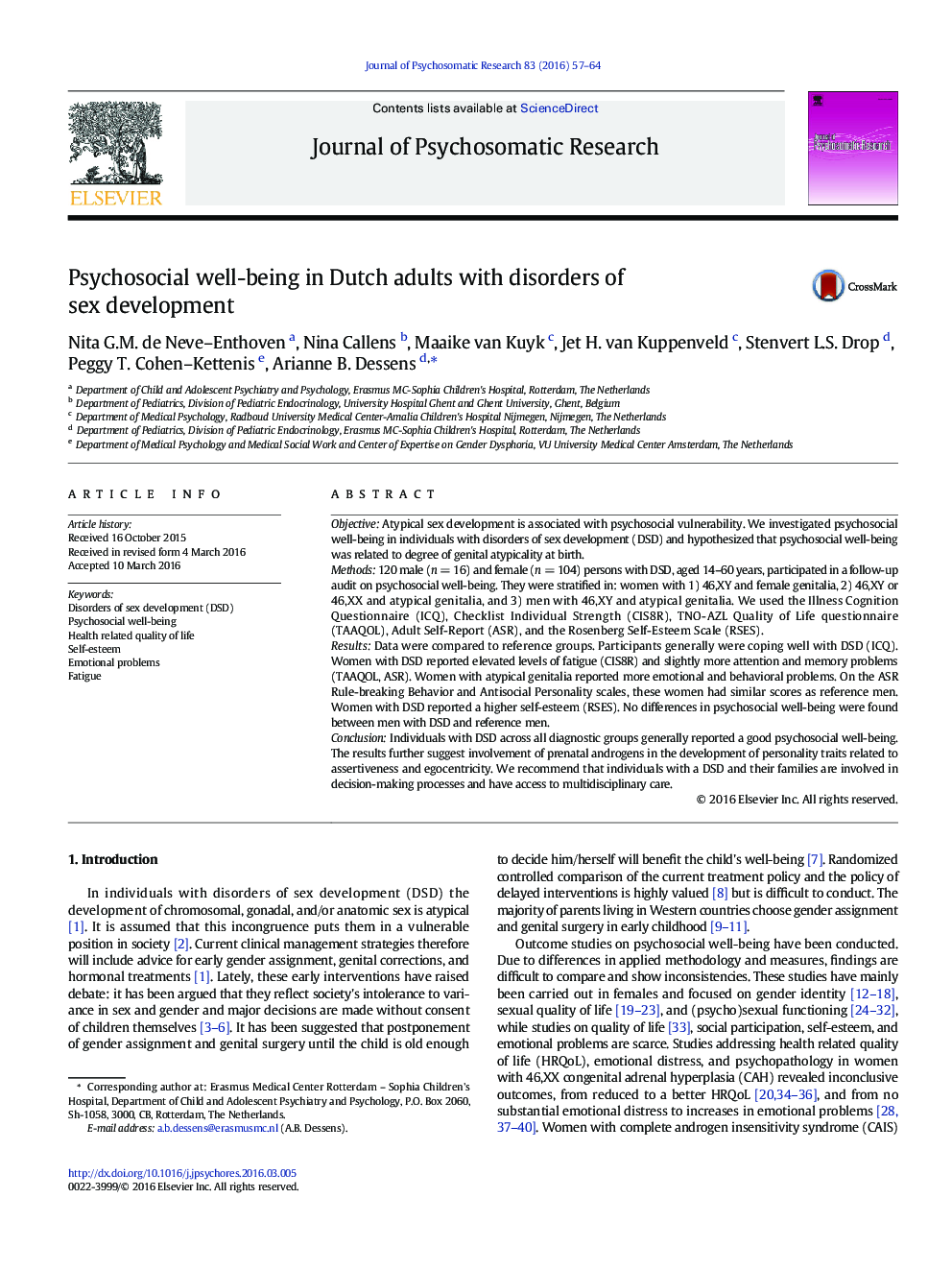| کد مقاله | کد نشریه | سال انتشار | مقاله انگلیسی | نسخه تمام متن |
|---|---|---|---|---|
| 949160 | 1475912 | 2016 | 8 صفحه PDF | دانلود رایگان |
• Dutch patients with DSD reported good psychosocial well-being and self-esteem
• Men and women were coping well with DSD
• Women born with ambiguous external genitalia reported more self-isolation
• These women scored in masculine ranges on antisocial personality problems
• All women experienced fatigue and concentration problems
ObjectiveAtypical sex development is associated with psychosocial vulnerability. We investigated psychosocial well-being in individuals with disorders of sex development (DSD) and hypothesized that psychosocial well-being was related to degree of genital atypicality at birth.Methods120 male (n = 16) and female (n = 104) persons with DSD, aged 14–60 years, participated in a follow-up audit on psychosocial well-being. They were stratified in: women with 1) 46,XY and female genitalia, 2) 46,XY or 46,XX and atypical genitalia, and 3) men with 46,XY and atypical genitalia. We used the Illness Cognition Questionnaire (ICQ), Checklist Individual Strength (CIS8R), TNO-AZL Quality of Life questionnaire (TAAQOL), Adult Self-Report (ASR), and the Rosenberg Self-Esteem Scale (RSES).ResultsData were compared to reference groups. Participants generally were coping well with DSD (ICQ). Women with DSD reported elevated levels of fatigue (CIS8R) and slightly more attention and memory problems (TAAQOL, ASR). Women with atypical genitalia reported more emotional and behavioral problems. On the ASR Rule-breaking Behavior and Antisocial Personality scales, these women had similar scores as reference men. Women with DSD reported a higher self-esteem (RSES). No differences in psychosocial well-being were found between men with DSD and reference men.ConclusionIndividuals with DSD across all diagnostic groups generally reported a good psychosocial well-being. The results further suggest involvement of prenatal androgens in the development of personality traits related to assertiveness and egocentricity. We recommend that individuals with a DSD and their families are involved in decision-making processes and have access to multidisciplinary care.
Journal: Journal of Psychosomatic Research - Volume 83, April 2016, Pages 57–64
